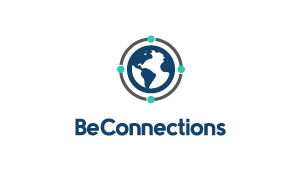5 lessons every entrepreneur should know before launching a startup
1. Finding support is not easy.
It doesn’t matter how many people think your idea is cool, finding early adopters will be hard. For this reason, the idea and the product must be equally as great, and both will fall short if the team isn’t synchronized. I would highly recommend a fluid channel of communication between your team members. As for your product, always remember that there will be haters – don’t let that stop you from moving forward but keep their criticism in the back of your mind. Haters are good; their feedback can help founders make great products. Learn from it.

Join us on http://www.beconnections.com
2. Join an accelerator.
Accelerators are a founder’s best friend, but it’s important to find one that’s a good match for the team. In the case of BeConnections, we wanted to work alongside an accelerator that could help us carry out our mission to connect companies to each other via an online matchmaking platform for businesses. Our goal was to attract more American companies to BeConnections and therefore, it was important that our accelerator had a strong presence in the United States. As an international startup, we knew that a solid set of mentors in the States would be key and that we needed an accelerator that was involved in our daily activities. Finally, I didn’t like the idea of giving up equity unless that equity had a monetary compensation attached to it from a leading accelerator like Techstars, 500 Startups or Y Combinator. As such, we did our research and found an accelerator called Dat Venture that matched our criteria. Since then, I’ve temporarily relocated to Boston to participate in its program and have not regretted my decision to this day. As one of Dat Venture’s startups, I can vouch for its excellent team and high quality mentorship.
3. Commitment is key.
Mark Zuckerberg makes entrepreneurship look easy and it’s not. Forget about all those stories from Silicon Valley, and concentrate on developing your own reality. Being a founder takes a lot of commitment and passion. Many of us live off of eggs, roman noodles and Redbulls. Even more of us have not seen a paycheck in months, and yes, we still have bills to pay every single day. Therefore, the entrepreneur who is chasing the money as opposed to providing a solution to a problem in the world will likely fail every time. Money does not grow on trees and successful entrepreneurs aren’t magically born from night to day, it takes a lot of work and even more commitment to develop your idea into a revenue producing small business. If you can’t commit, find a 9am to 5pm job.

4. Your life will change drastically.
Think of a startup as a child. Why have one if you’re not ready to make any “sacrifices”? I’ve put the word sacrifice in quotation marks because is it really a sacrifice when there’s love involved? Fine, I can’t remember the last time I got 8 hours of sleep, as I’m sure any newbie mom can’t either… I don’t splurge on myself because I have to invest that money in my product, as a parent does with their child. And weekends, what’s that? I have one day a week for me. My personal life is on hold until my product is mature enough to stand on its own and right now BeConnections is not… hence the term startup.
BeConnections is my infant and I nurture it as one. For that reason, I’d recommend any founder to think about how a newborn would affect their life before jumping heads into a startup. Summary: be rational and accept the consequences of your choices.
5. Bootstrapping is not cool.
Before BeConnections, I didn’t realize the consequences of bootstrapping a startup. I had read about entrepreneurs who had quit their jobs and just went for it. These people chased their dreams. They were bootstrappers and I thought I could be one of them too. Carpe diem, right?.
Wrong. In my case, I launched BeConnections from my living room. It’s been a painful and amazing journey since then. I am definitely not any wealthier, but I do consider myself to be generally happier. I’ve had to rent my apartment and change my lifestyle to pursue this dream but I hope that one day I can be one of those successful entrepreneurs who can proudly look back and say I did it. In the meantime, my suggestion to any fellow entrepreneurs would be to not quit their day jobs. Forget about what accelerators want you to do and live a life within your means. It’s extremely difficult to support anyone or anything else before being able to financially support yourself.









